Free Shipping On Orders Over $100!
At Revolution Health, we believe the best way to fight heart disease is to prevent it before it starts. Traditional checkups often stop at basic cholesterol numbers, but research shows that cardiovascular risk is far more complex. That’s why our preventive cardiology testing goes deeper—evaluating inflammation, genetics, metabolic health, and advanced lipid markers to uncover risks that routine labs can miss. By identifying hidden threats early, we can create a personalized plan to protect your heart and optimize your long-term health. Whether you’re concerned about family history, managing existing risk factors, or simply want the most proactive approach to prevention, our comprehensive testing gives you the clarity and confidence you need to stay ahead of cardiovascular disease.

Cardiovascular disease often develops silently, but advanced blood testing can uncover hidden risks long before symptoms appear. In this post, we’ll explore the most important labs—based on the top 25 cardiovascular risk factors—that provide a comprehensive picture of your heart health.
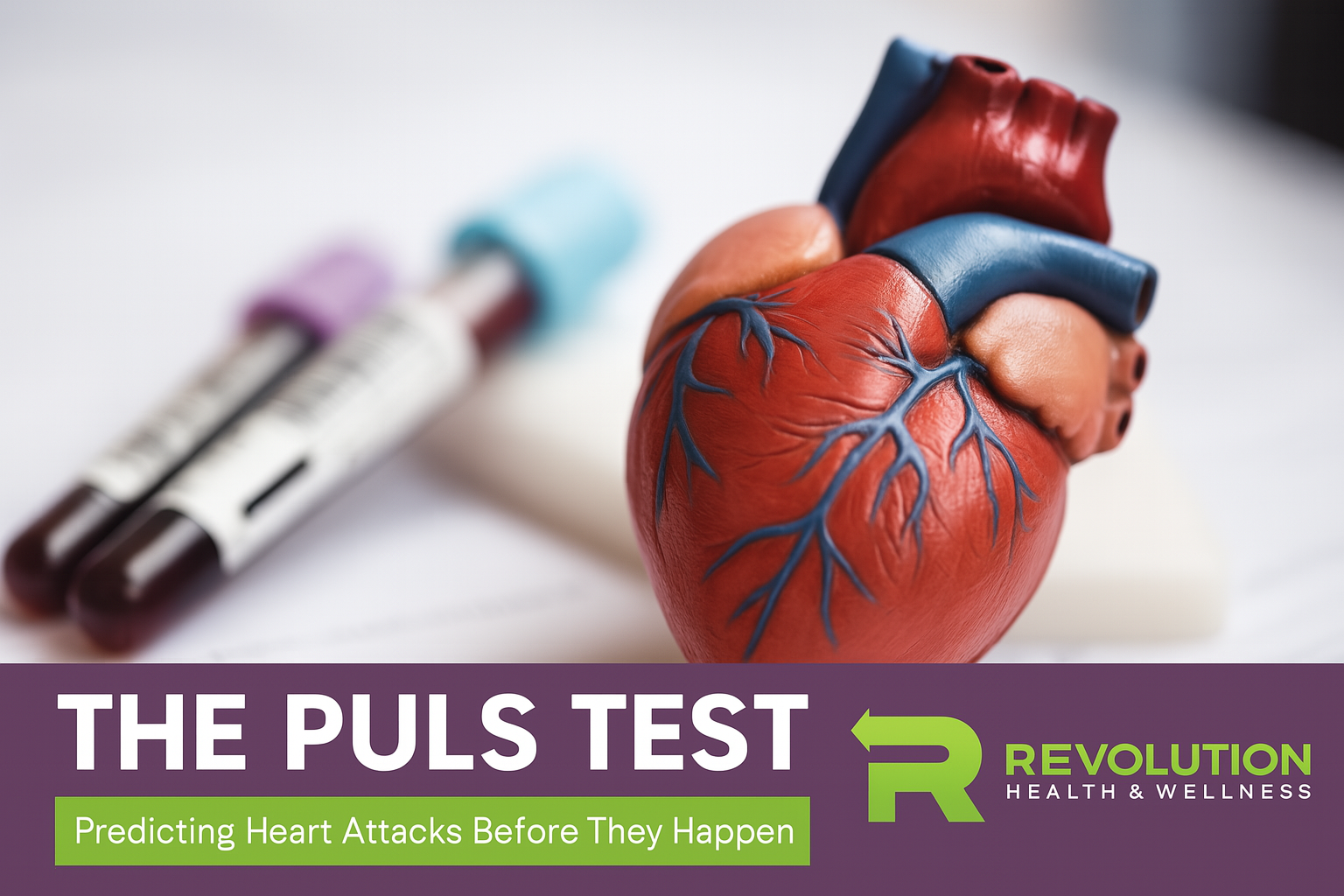
What if you could predict a heart attack before the first warning signs appeared? The PULS Test, by Smart Vascular Dx, uses cutting-edge biomarkers to detect silent vascular damage—giving you a chance to act early and prevent a heart attack years ahead of time.
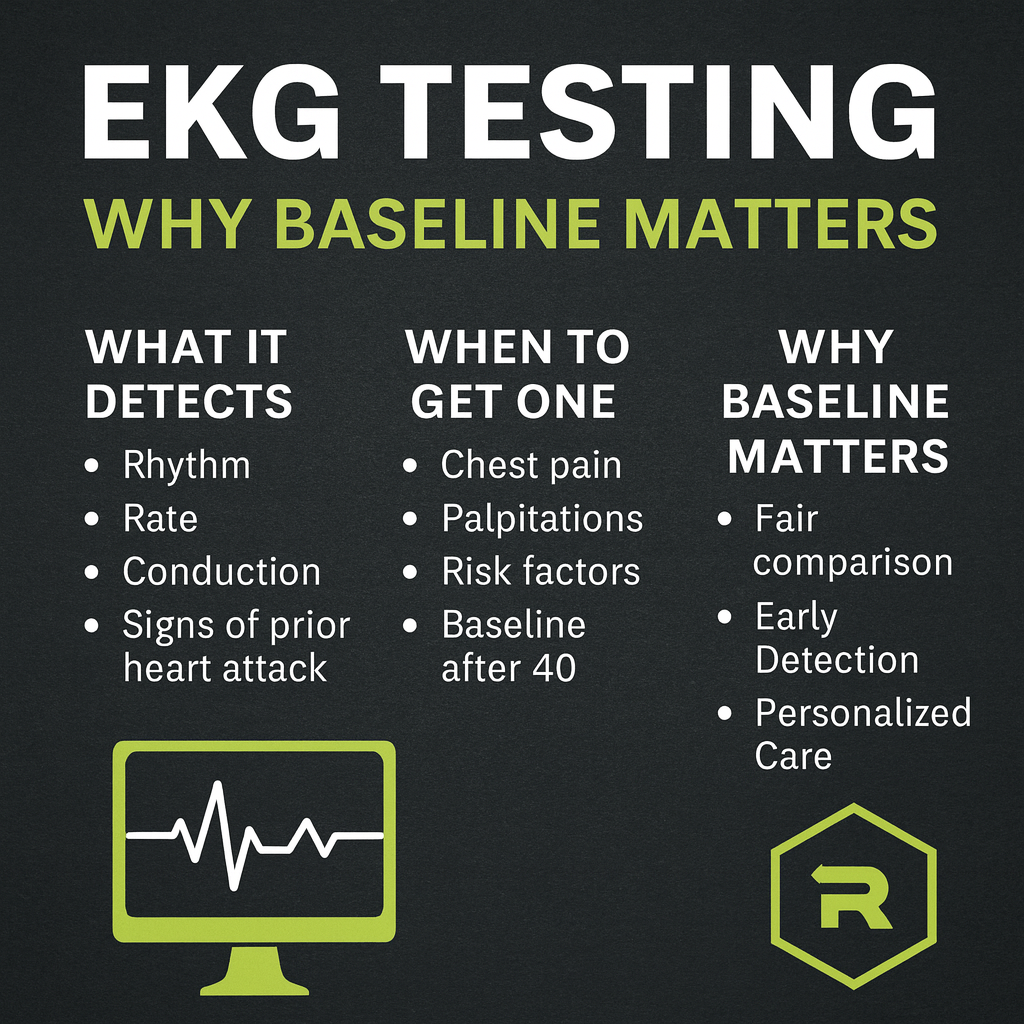
An electrocardiogram (EKG) is one of the simplest yet most powerful tools for monitoring heart health in the outpatient setting. Establishing a baseline EKG provides an essential point of comparison, helping clinicians detect subtle changes early and personalize long-term cardiovascular care.
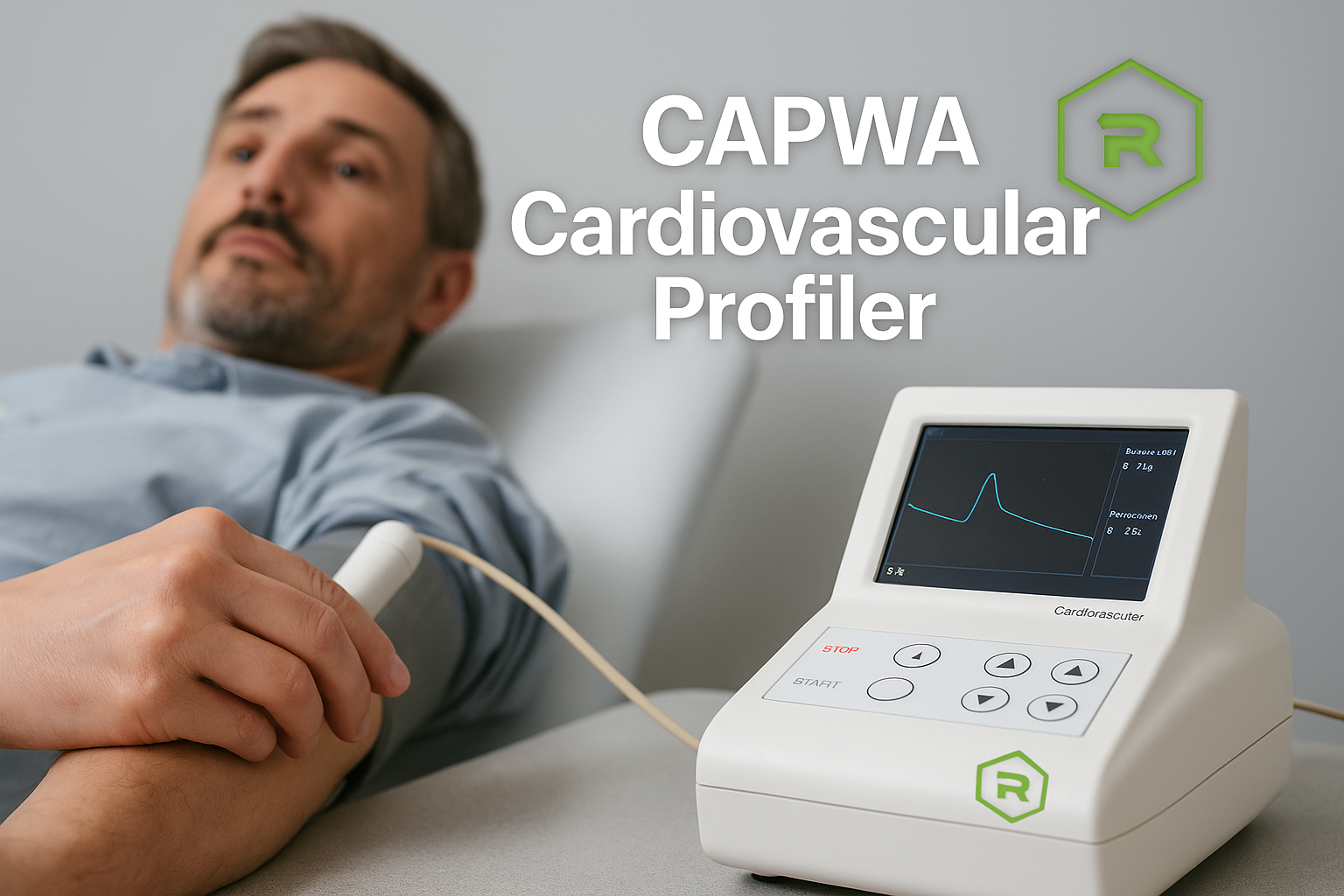
Cardiovascular disease often advances silently—by the time symptoms arise, damage may already be well underway. The CV Profiler (CAPWA) offers an early-detection solution, measuring arterial elasticity non-invasively so you can catch risk before it becomes crisis.
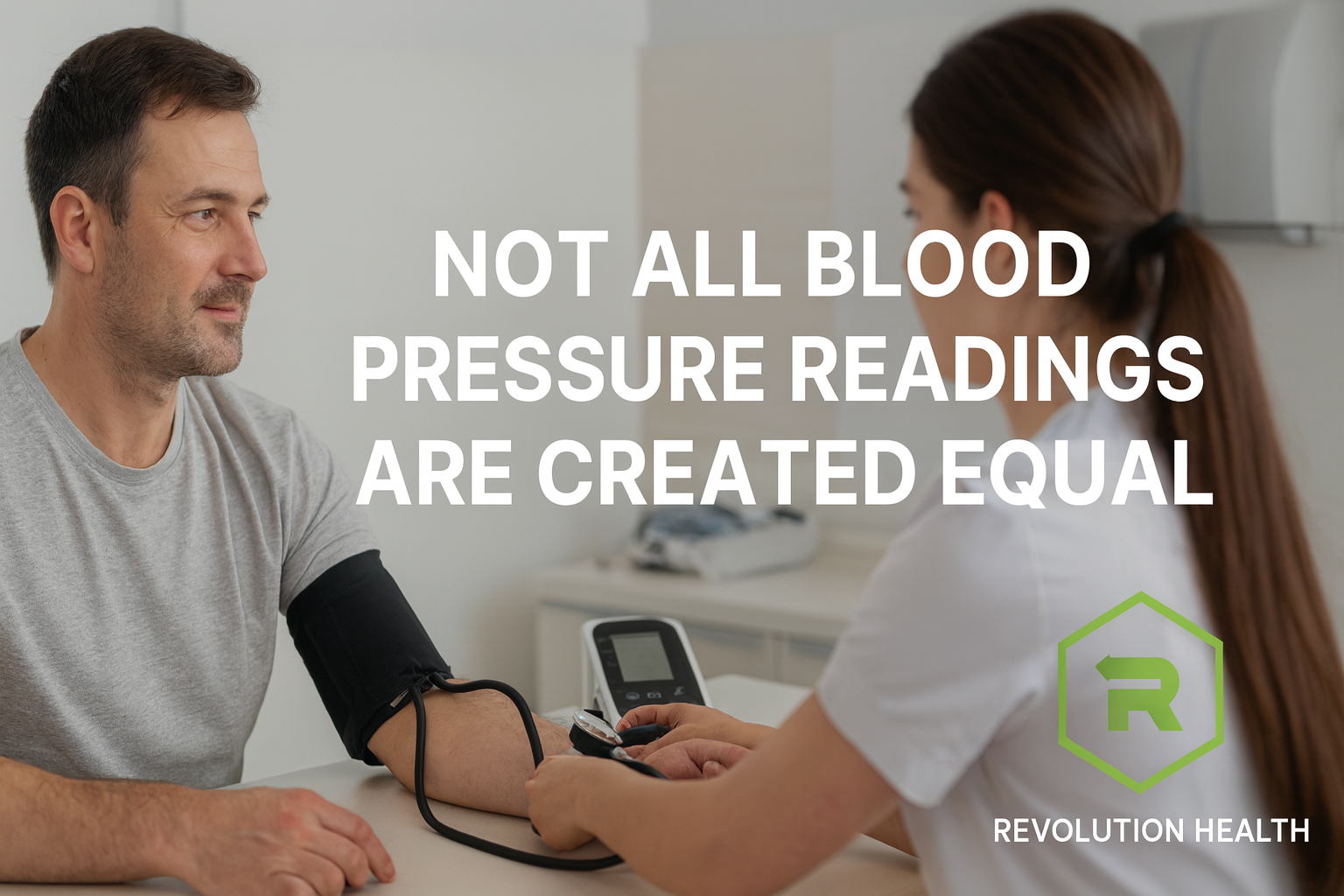
Most of us are familiar with the blood pressure cuff at the doctor’s office—but that “brachial” measurement doesn’t always tell the whole story. Central blood pressure, measured closer to the heart, gives a more accurate view of the strain on your cardiovascular system and risk of long-term damage.
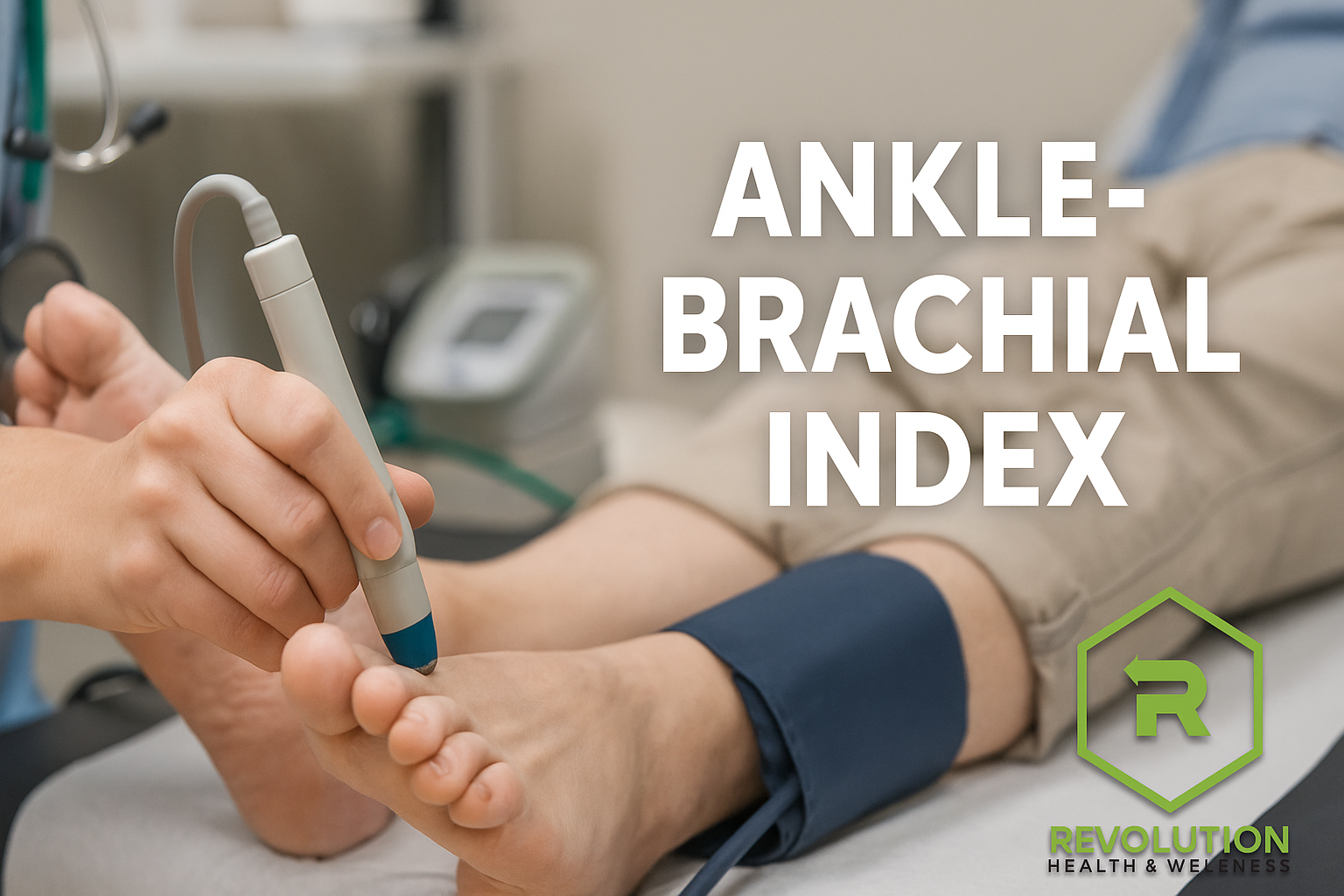
The Ankle-Brachial Index (ABI) test is a quick, non-invasive way to assess blockage in your leg arteries—and its results can reveal much more than just leg health. Low ABI readings are an early warning sign of peripheral artery disease (PAD) and are strongly linked to higher risk of heart attack, stroke, and other cardiovascular problems.

Your heart rate tells one part of the story—but the variability between your beats reveals something deeper: the balance of your autonomic nervous system and how well you handle stress, recovery, and health demands.
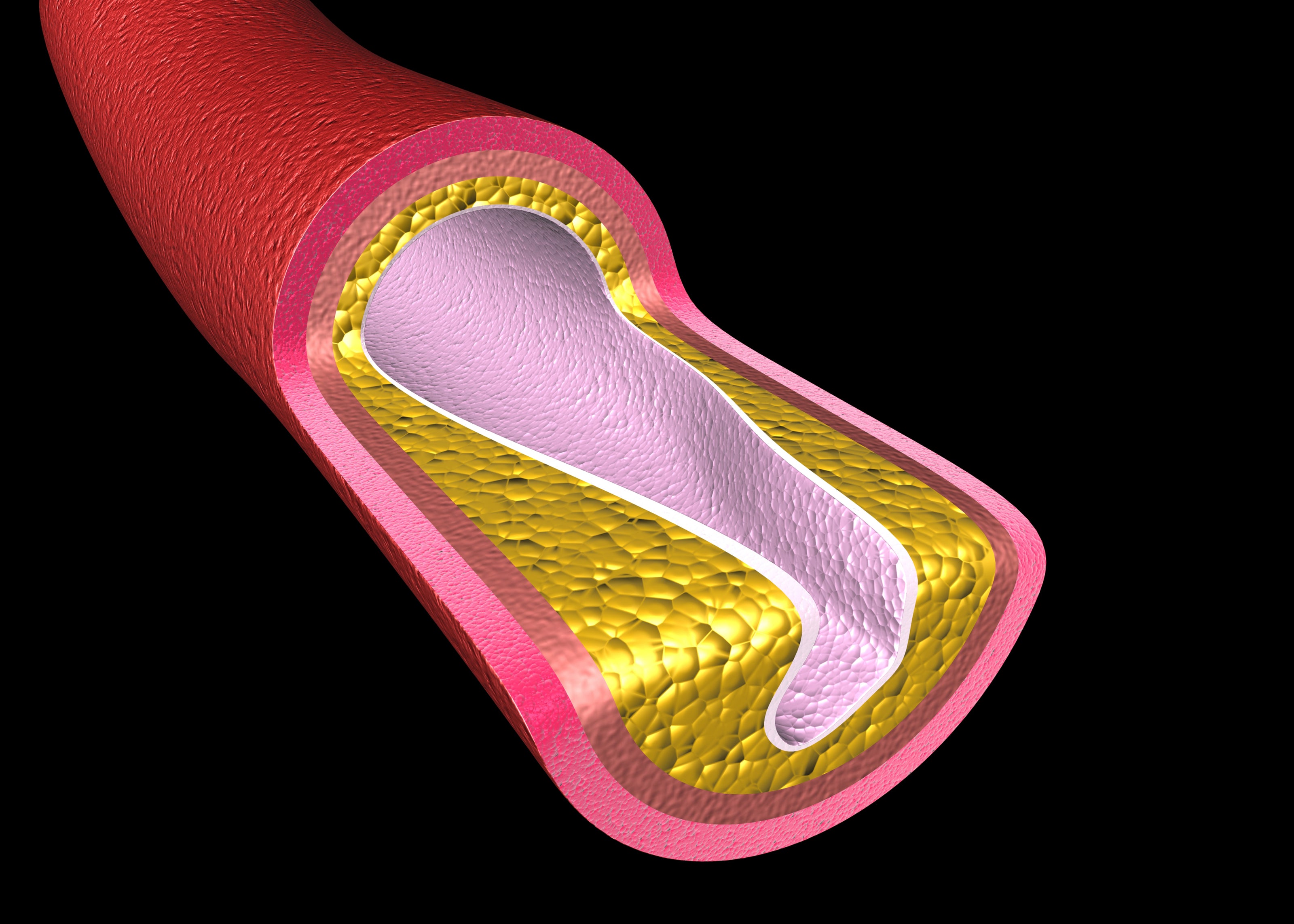
What if you could peek inside your carotid arteries and see the early warning signs of cardiovascular disease before a heart attack or stroke strikes? CIMT testing does exactly that—measuring arterial thickening and plaque to reveal hidden risk far sooner than traditional methods.

A cardiac stress test evaluates how well your heart performs under physical exertion or medication-induced stress, helping to identify hidden heart disease, rhythm problems, or reduced blood flow. It’s a safe, noninvasive way to guide diagnosis and treatment for cardiovascular health.
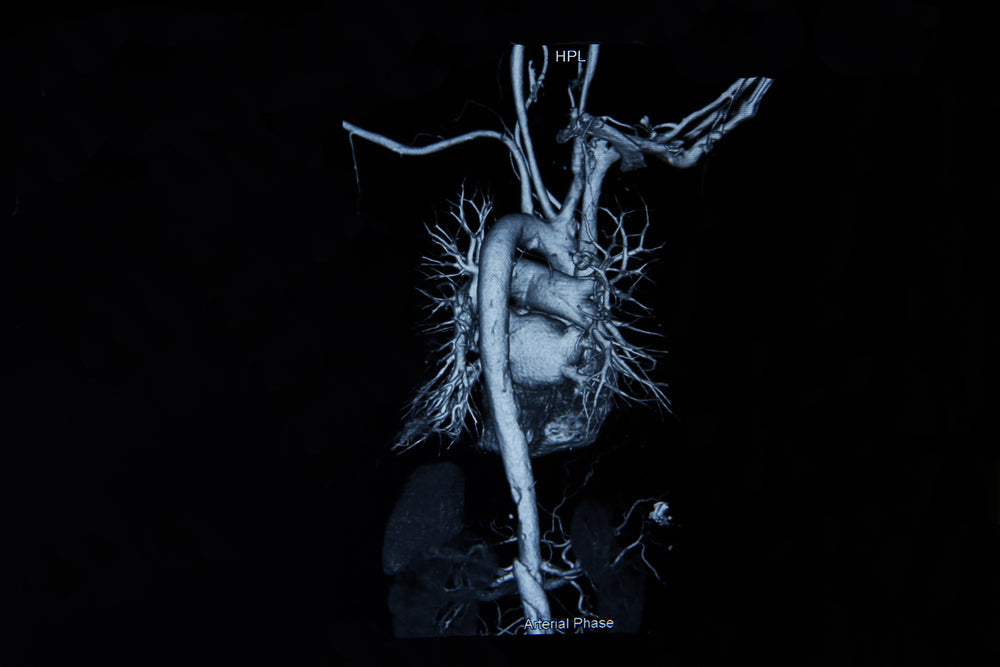
Hidden plaque in your arteries can quietly set the stage for serious heart problems—but a CT Angiogram with Cleerly reveals not just whether plaque is present, but how much, what kind, and how risky—so you can act before symptoms appear.
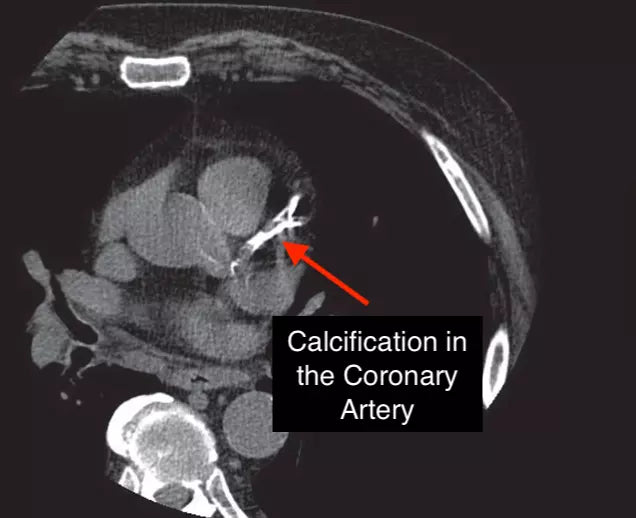
A CT scan that measures calcium in your heart’s arteries, the CAC test helps you see how much plaque is already there—offering insights that can predict future heart attack risk more clearly than many traditional risk factors.
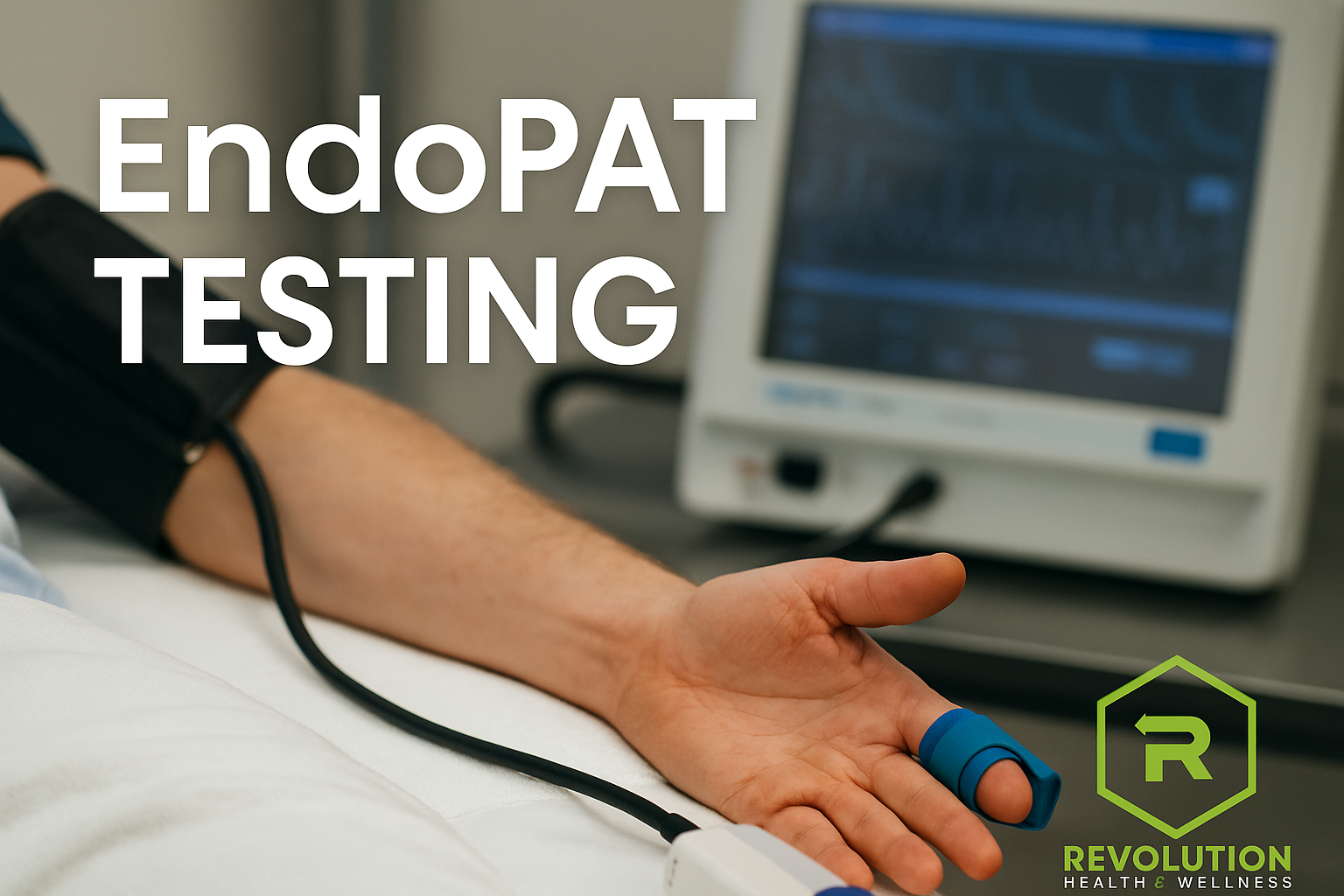
Even when your cholesterol and blood pressure are in check, damage to the endothelium can quietly build up — EndoPAT measures this hidden threat by evaluating how well your blood vessels flex and recover, helping you and your doctor get ahead of cardiovascular risk.

CardiaX is a cutting-edge genetic test that looks at 21 specific SNPs linked to cardiovascular disease and hypertension—giving you insight into your inherent risk, not just your current symptoms. It’s about understanding why your heart behaves the way it does, so you and your healthcare provider can tailor prevention and treatment strategies uniquely for you.
Pair text with an image to focus on your chosen product, collection, or blog post. Add details on availability, style, or even provide a review.
Pair text with an image to focus on your chosen product, collection, or blog post. Add details on availability, style, or even provide a review.
Pair text with an image to focus on your chosen product, collection, or blog post. Add details on availability, style, or even provide a review.
Pair text with an image to focus on your chosen product, collection, or blog post. Add details on availability, style, or even provide a review.
Pair text with an image to focus on your chosen product, collection, or blog post. Add details on availability, style, or even provide a review.
Pair text with an image to focus on your chosen product, collection, or blog post. Add details on availability, style, or even provide a review.
Pair text with an image to focus on your chosen product, collection, or blog post. Add details on availability, style, or even provide a review.
Pair text with an image to focus on your chosen product, collection, or blog post. Add details on availability, style, or even provide a review.
